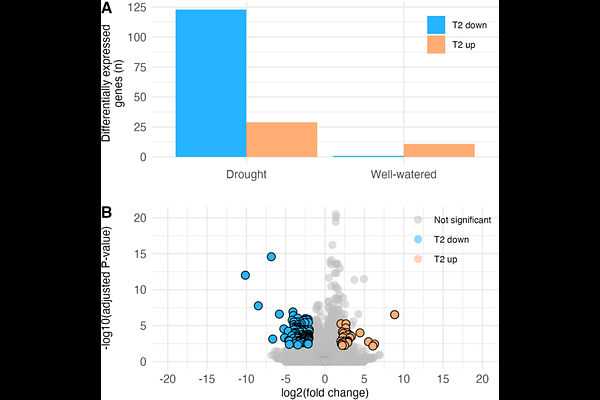Drought-associated genes exhibit high constitutive expression in Quercus douglasii, a drought tolerant California oak

Drought-associated genes exhibit high constitutive expression in Quercus douglasii, a drought tolerant California oak
Steele, S.; Peck, L. D.; Sork, V. L.
AbstractDrought stress is a strong selective pressure for all plant species. Plants can respond to water shortage through various strategies that confer drought tolerance, but with a potential cost for growth. These strategies may be plastic responses that occur with the onset of stress or may comprise continuously-expressed (constitutive) traits regardless of water availability. Here, we used RNA-Seq to characterize transcriptional responses to dehydration in seedlings of a drought tolerant oak, Quercus douglasii from a population in the Sierra Nevada Foothills in California. In the greenhouse, we subjected 24 seedlings from six maternal families to dry-down or well-watered treatments and prepared RNA libraries from tissue collected before and after each treatment (48 libraries). Our goals were to characterize the pattern of up- and down-regulated genes in response to dehydration and to assess the extent to which this drought tolerant species shows differential versus constitutive expression as a drought response strategy. We identified few differentially expressed genes in response to dehydration. Up-regulated genes were related to known drought response functions, while down-regulated genes were enriched for gene ontology terms related to growth and carbohydrate metabolism. We discovered high constitutive expression of many putatively drought-responsive genes that had been found to exhibit gene expression plasticity in a drought sensitive oak, which a novel finding for drought tolerance strategies in tree species. We conclude that the drought tolerant strategy of Q. douglasii incorporates high constitutive expression levels of drought-responsive genes, as well as some plasticity in its response once environmental stress is experienced.